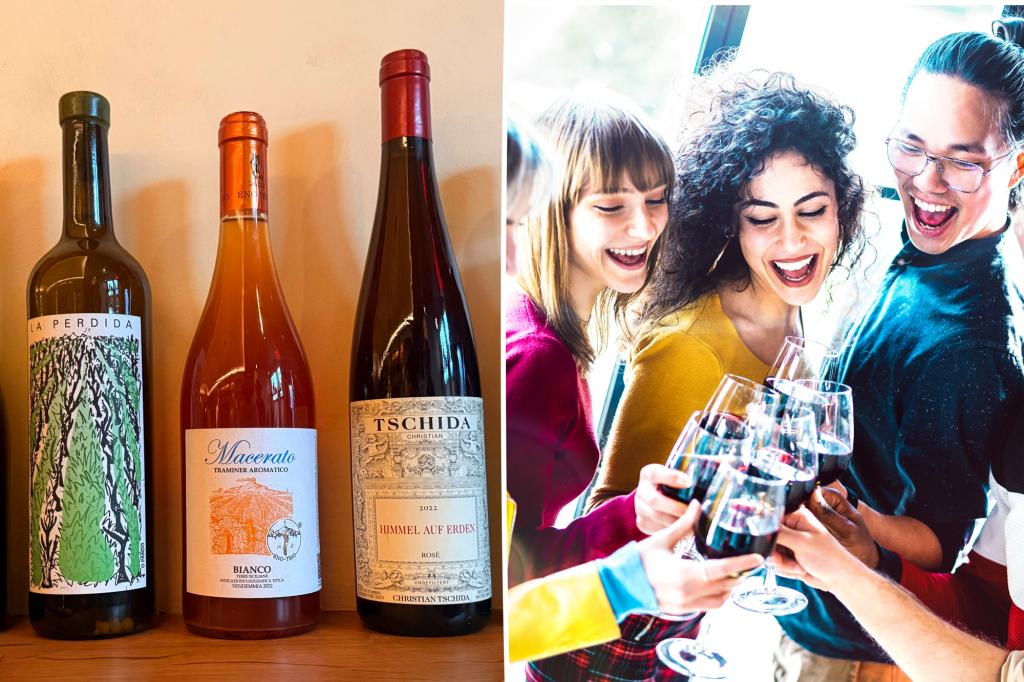The Allure of Natural Wine: A Journey into Minimal Intervention Winemaking
Natural wine, a burgeoning category within the wine world, has captured the attention of wine enthusiasts seeking a more authentic and unadulterated drinking experience. These wines, crafted with minimal human interference, represent a return to ancient winemaking practices, emphasizing the inherent qualities of the grape, the unique characteristics of the terroir (the environmental factors that influence grape growth), and the specific nuances of each vintage. Unlike conventional winemaking, which often employs additives, commercial yeasts, and excessive sulfites, natural wine production prioritizes organic grape cultivation and avoids artificial manipulation. This results in wines that are expressive, vibrant, and deeply connected to their origins. While no strict legal definition exists, the core philosophy of natural wine centers around allowing nature to take its course, resulting in a wine that is a true reflection of the time and place it comes from.
Deciphering Natural Wine: A Quest for Authenticity and Transparency
Identifying a natural wine can be challenging due to the lack of standardized labeling. While some regions, such as France and the EU, have adopted designations like "Vin Method Nature," most natural wines remain unlabeled, requiring consumers to rely on their own research or seek guidance from knowledgeable wine merchants and sommeliers. In the United States, the term "Zero Zero" is sometimes used, indicating wines made with no added additives or sulfites. Experienced natural wine drinkers often develop an intuitive sense for identifying these wines, recognizing their characteristic vibrancy and openness on the palate. Natural wine enthusiasts appreciate the personal touch and dedication of the winemakers, who often work with small plots of land, employing sustainable farming practices and limiting production to prioritize quality over quantity. This dedication extends to exploring indigenous and ancestral grape varietals, resulting in unique and often lesser-known wines that showcase the diversity of the grape world.
The Philosophy of Natural Winemaking: Embracing Imperfection and Expression
Natural winemakers embrace a philosophy of transparency and honesty, openly acknowledging any interventions necessary to ensure the wine’s stability and longevity. While some judicious sulfur additions might be required in certain cases, these interventions are viewed as part of the wine’s narrative, reflecting the challenges and realities of working with natural processes. The absence of a fixed definition for natural wine fosters ongoing dialogue and exploration within the wine community, prompting continuous refinement of practices and a deeper understanding of the nuances of natural winemaking. The inherent variability of natural wines, influenced by vintage variations and even bottle-to-bottle differences, is considered a defining characteristic, rather than a flaw. This dynamic nature adds to the excitement and discovery associated with natural wine, showcasing the ever-evolving relationship between nature and craftsmanship.
Exploring the Spectrum of Natural Wines: From Cloudy to Funky, and Everything in Between
Natural wines encompass a wide range of sensory experiences, from cloudy and funky to exceptionally refined, comparable to premium wines produced with more conventional methods. The freshness and slight fizz often present in natural wines are attributed to the presence of natural carbon dioxide, a byproduct of fermentation that acts as a natural preservative. The unfiltered nature of many natural wines contributes to their characteristic cloudiness, a visual cue that speaks to the minimal intervention approach. These wines offer a diverse tapestry of flavors and textures, reflecting the unique expression of the grape, the terroir, and the winemaker’s individual style. Whether seeking a crisp, refreshing white, a complex and earthy red, or a lively sparkling wine, the world of natural wines offers a wealth of options for adventurous palates.
Navigating the World of Natural Wine: Seeking Guidance and Discovering New Favorites
For those venturing into the world of natural wine, seeking advice from trusted wine professionals or exploring specialized wine shops can be invaluable. Importers who specialize in natural wines, such as those recommended by wine writer Alice Feiring, often curate selections that reflect the quality and authenticity sought by natural wine enthusiasts. Similarly, seeking recommendations for specific producers, as offered by beverage directors like Maggie Dahill, can open doors to exciting new discoveries. Looking for keywords like "organic," "sustainable," "biodynamic," and "minimal sulfites" on wine labels can also provide clues, although the term "natural" itself often remains undefined. Exploring natural wine bars and restaurants with dedicated natural wine programs offers another avenue for tasting and learning about these unique wines.
Celebrating the Story of Natural Wine: A Toast to Tradition and Innovation
Natural wine is more than just a beverage; it’s a story told through the lens of time and place. It represents a connection to the past, a revival of traditional winemaking practices, and a celebration of the inherent beauty of the grape. Choosing natural wines not only enhances the enjoyment of wine drinking but also supports smaller winemakers committed to sustainable practices and preserving the unique character of their vineyards. Whether celebrating a special occasion or simply seeking a unique and memorable wine experience, exploring the world of natural wine offers a journey into the heart of winemaking, where tradition and innovation converge to create wines that are truly reflective of their origins.















